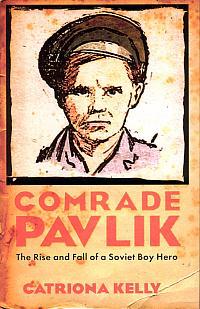“The Economist” on the 11th of August published an article
‘Lessons from the mini-sub rescue’ commenting on the rescue of the Russian Navy bathyscaphe. When it comes to Russia “The Economist” loves making broad generalizations. This time it rants about the chaotic and catastrophic conditions of the Russian Navy. In order to support this statement they found one of the best British “experts” on post-Soviet security issues. Professor Mark Galeotti from the Keele University compared Russian Navy to the Potemkin Fleet.
I don’t think much about Russian Navy but Prof. Galeotti could find a better metaphor – Potemkin Fleet actually symbolizes the glory of the Russian Navy when at the end of the XVIII c. Russia won several major sea battles against Turkey and France. The Potemkin Fleet is always associated with the name of Admirals Ushakov and Senyavin. Medal of Ushakov is one of the highest military awards for Navy petty officers and sailors in Russia.
Evidently, Prof. Galeotti thought that Potemkin Fleet is something like Potemkin villages, thus showing poor state of education of Russia “experts” in the UK. In Russia we would say that Prof. Galeotti farted in the public swimming pool.
As for Potemkin villages, the myth goes as if Potemkin (Prince Grigori Potemkin-Tavrichesckiy) in 1787, when Catherine the Great inspected the Ukraine and the Crimea, elaborately constructed dozens of faked villages in order to impress the empress. Well, this story is a lie. It was coined by Georg von Helbig in 1797, ten years later after the inspection tour, when both Potemkin and Catherine passed away. This tale immediately became very popular and when von Helbig published the biography of Potemkin in 1801 nobody had a single doubt about it.
Actually, one of the main reasons for Catherine’s inspection tour was a stream of slander about Potemkin’s corruption. Catherine wanted to inspect personally what was actually built in the Ukraine and the Crimea. A book was published in 1786 (a year before the trip) with detailed descriptions of what the empress expected to see on the way. She also invited seven European envoys, as important eye witnesses, to participate in the tour. Among “Potemkin villages” they inspected were Sevastopol, Kherson, Nikolaev, Ekaterinoslav. In seven years only Potemkin managed to build three major shipyards, Navy port in Sevastopol with 7 frigates (from 15 to 25 cannons), 8 line-of-battle and 20 minor ships, an arsenal, hospitals, schools, public theatres. In Russia Prince Potemkin is known as the “father of the Black Sea Fleet” as Peter the Great was the “father of the Baltic Fleet”.
Potemkin managed to attract to his “villages” more than 170 000 settlers and immigrants: Greeks, Armenians, Corsicans, Jews from Germany and certainly Russians. Russian deserters or runaway serfs were amnestied if they settled as farmers in the Crimea. It is not widely known that since 1787 thousands of British criminals were sent to the Crimea as there was trouble in the Northern American colonies, Australia was too far away and Brits never liked their convicts to stay too close to the Isles.
Anyway, this story demonstrates the power of slander. It was always very easy to check if the tale about Potemkin villages was true or not but it was (and still is) so very “convincingly” Russian that nobody took trouble to doubt it.
 Catriona Kelly did a great job of researching the story about Pavlik Morozov in her book “Comrade Pavlik”. What she found is really surprising – the whole story is nothing but a Soviet myth. Pavlik Morozov didn’t denounce anyone. He and his friend were found dead in the forest and there were no proves that he was killed out of revenge. He was not even a Young Pioneer. His father was not an enemy of the people. It’s still unclear how the whole story came into being.
Catriona Kelly did a great job of researching the story about Pavlik Morozov in her book “Comrade Pavlik”. What she found is really surprising – the whole story is nothing but a Soviet myth. Pavlik Morozov didn’t denounce anyone. He and his friend were found dead in the forest and there were no proves that he was killed out of revenge. He was not even a Young Pioneer. His father was not an enemy of the people. It’s still unclear how the whole story came into being.